News
-
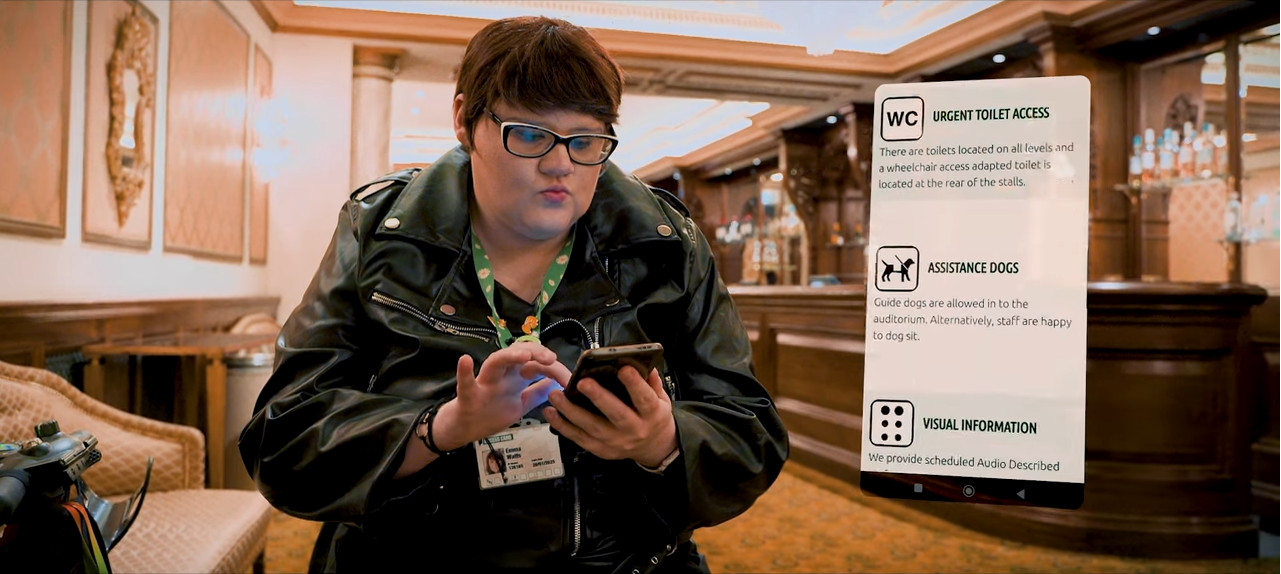
Theatre Goer Becomes Latest Access Card Ambassador
A 34-year-old disabled woman who regularly enjoys trips to West End theatres has been officially recognised as an ambassador for the Access Card scheme. Emma Watts from Tyne and Weir has ADHD, Fibromyalgia...
Read more
-

Christmas Opening
Christmas and New Year Opening Times The Access Card Team will break up for Christmas on Friday 22nd December 2023 at 12 noon and return to the office on Tuesday 2nd January 2024. Whilst our phone lines...
Read more
-

How to... Link your Access Card / Principality Registration to the Principality Stadium
Access Card holders can now use their card to register their access requirements for sporting and music events at the famous Principality Stadium. Once you have purchased your tickets you can complete...
Read more
-
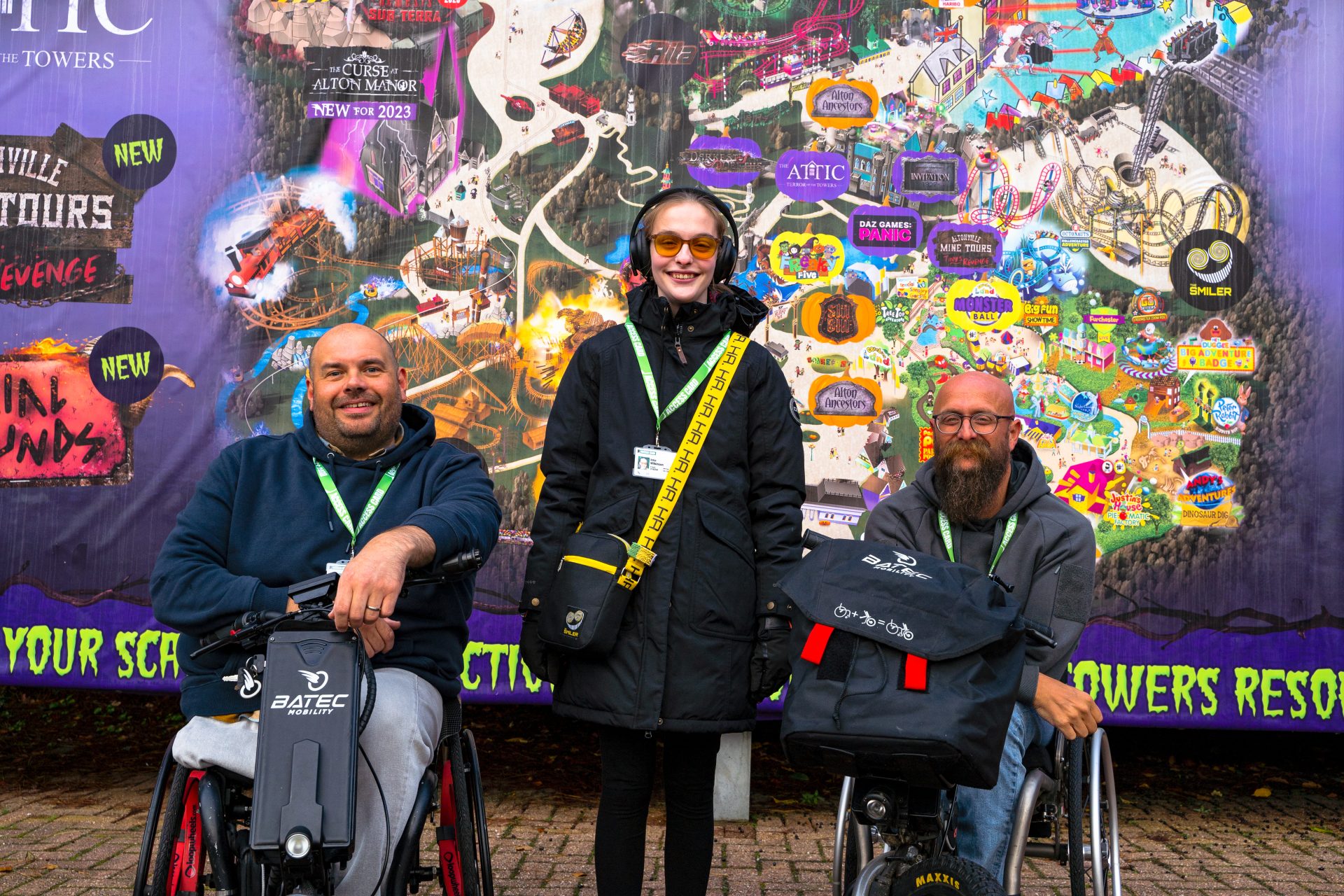
Theme Park Super Fan Launches Access Card Ambassador Team
Eighteen-year-old Iona Wilkinson, a self-confessed theme parks superfan, has become the first disabled person to be officially recognised as an ambassador for the Access Card scheme. College student Iona,...
Read more
-
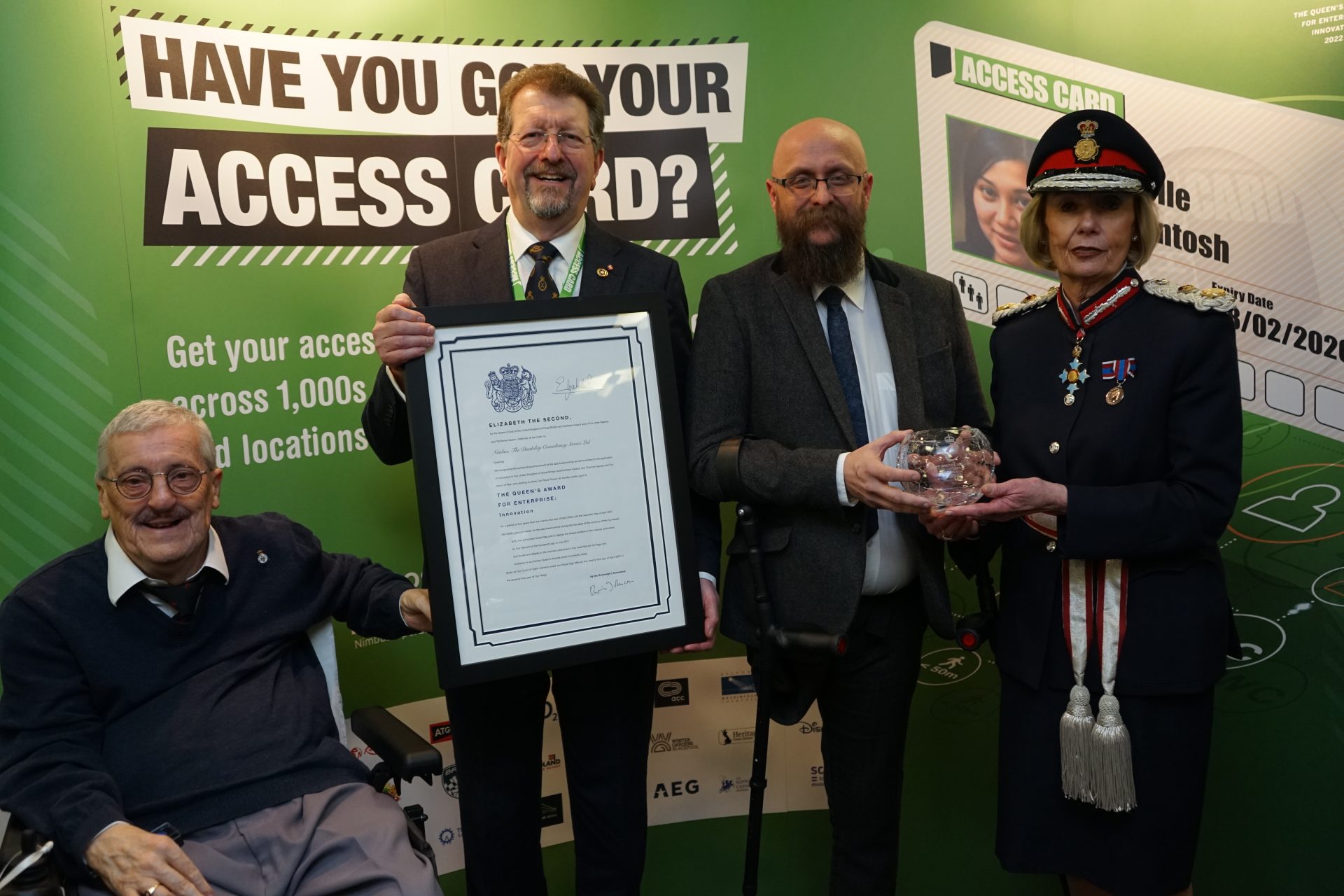
Royal Approval For Innovative Derby Company
A Derby-based social enterprise company, which is run by disabled people for disabled people, has been formally presented with The Queen’s Award for Enterprise by His Majesty’s Lord-Lieutenant of Derbyshire...
Read more
-

How to: Link your Access Card / Ride Access Pass Registration Number to Merlin Entertainment
It is now possible to link your Access Card or Ride Access Pass registration number to obtain a Ride Access Pass at Merlin Attractions across the UK. This currently includes Alton Towers, Thorpe Park,...
Read more
-

Access Card 'Names & Fames' third Primark store!
Introducing the Access Card's latest 'Named & Famed' Provider: Primark - Uxbridge This venue is 'Named & Famed'. Visit our FAQs page to find out more. "Discount fashion chain offering clothes...
Read more
-

Lyric Theatre showcases a great service
Lyric Theatre is just one of many theatres listed in the Access Card's directory Access Cards with '+1' symbol accepted as proof for a free essential companion ticket. "The Lyric Theatre is a West...
Read more
-

Blackpool Pleasure Beach develops its Access Scheme
The popular attraction will join a large number of Access Card Providers across the UK and beyond. Access Cards are now accepted as proof for an EasyPass. For more information, please visit the attraction's...
Read more
-

Woburn Safari Park leaps in!
Please welcome our latest 'Named & Famed' Provider: Woburn Safari Park This venue is 'Named & Famed'. Visit our FAQs page to find out more. "Woburn Safari Park is a safari park located in...
Read more
-

Access Card Holder explores conservation attraction
Please welcome our latest 'Named & Famed' Provider: Port Lympne Hotel & Reserve This venue is 'Named & Famed'. Visit our FAQs page to find out more. "Port Lympne Hotel & Reserve offers...
Read more
-

Access Card Holder praises Butlins Minehead
Butlins Minehead joins hundreds more 'Named & Famed' providers in our directory This venue is 'Named & Famed''. Visit our FAQs page to find out more. "Butlin's is a chain of large seaside...
Read more
-

MS Awareness Week 2022
"We estimate there are over 130,000 people with MS in the UK, and that nearly 7,000 people are newly diagnosed each year." - MS Society MS Awareness Week (25th April - 1st May 2022) is a week...
Read more
-

Access Card Holder visits Howletts Wild Animal Park
The attraction will join over four hundred other 'Named & Famed' providers in the Access Card's directory. This venue is 'Named & Famed'. Visit our FAQs page to find out more. "Howletts Wild...
Read more
-

Falkirk Wheel turns into Access Card Provider
Please welcome our latest Access Card Provider: The Falkirk Wheel "The world’s only rotating boat lift, The Falkirk Wheel links the Forth & Clyde Canal to the Union Canal 35 metres above, allowing...
Read more
-
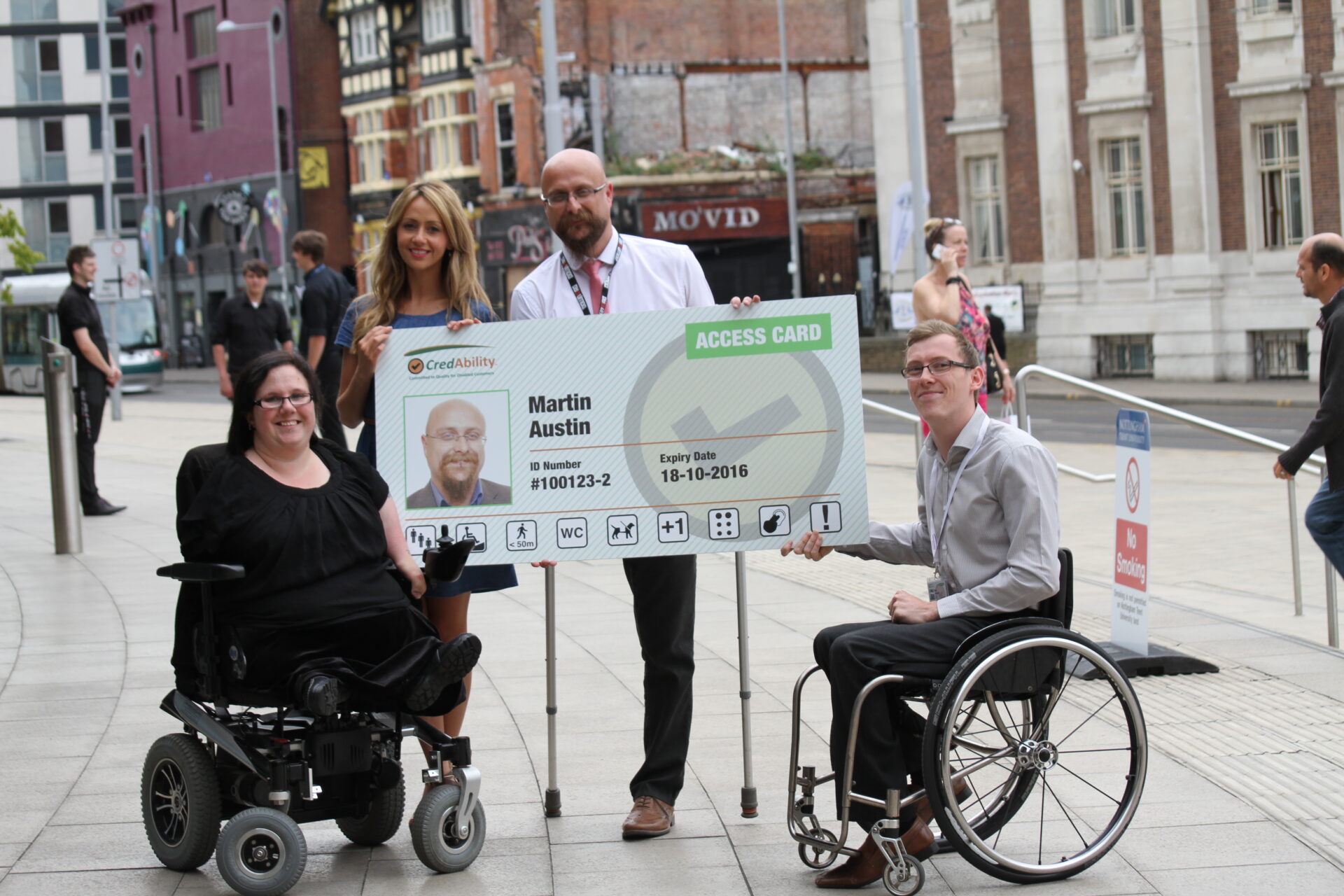
PIONEERING COMPANY RUN BY DISABLED PEOPLE WINS QUEEN’S AWARD
Nimbus, a company run by disabled people to help tens of thousands of their peers have better access to entertainment venues, has won a prestigious Queen’s Award for Enterprise. The company which...
Read more
-

Access Card recognised by Hazlitt Theatre
Introducing our latest Access Card Provider: Hazlitt Theatre Access Cards accepted as proof of access requirements when completing the Access Membership Scheme. "The Hazlitt Theatre is one of the...
Read more
-
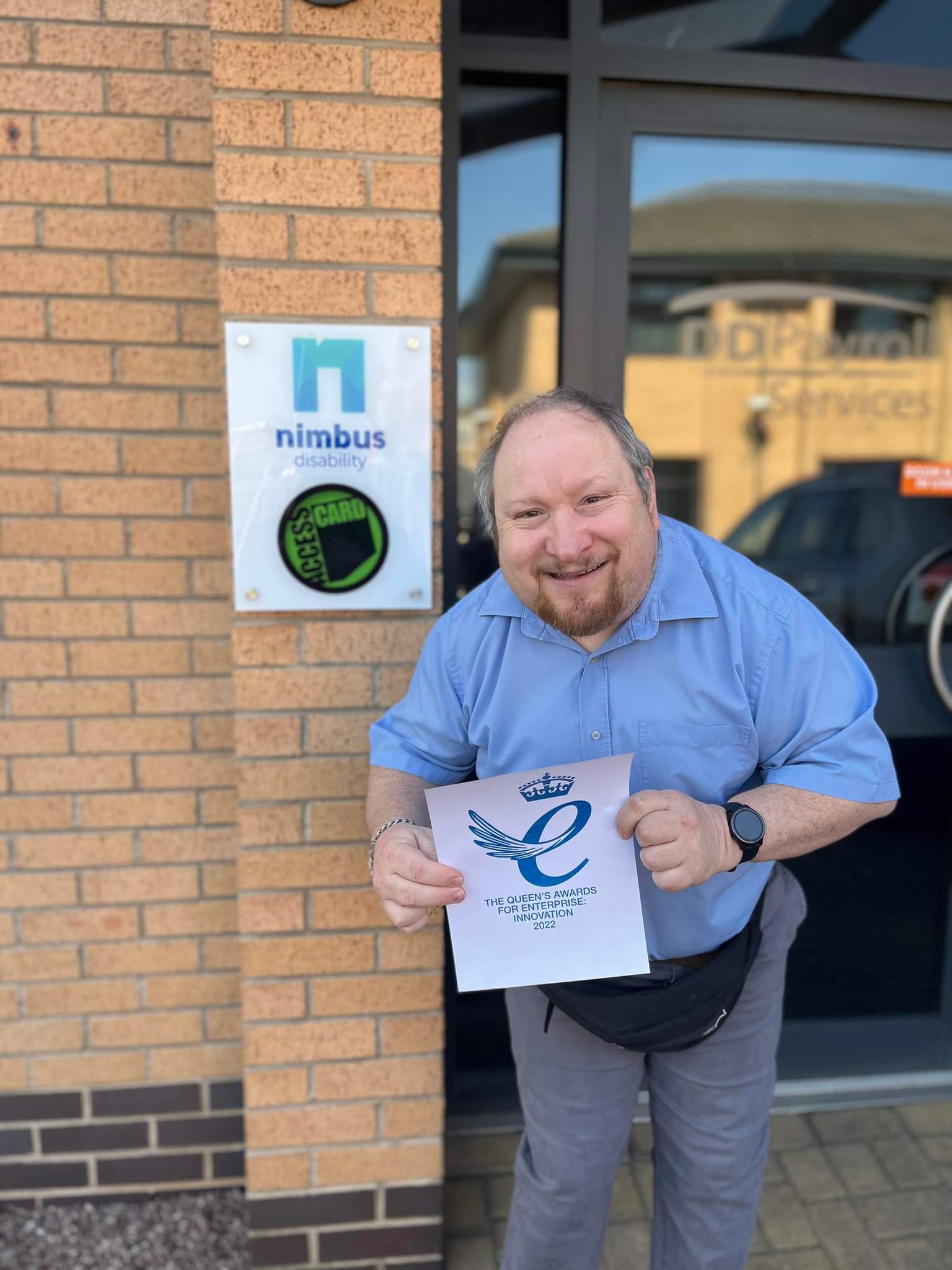
Access Card Holder joins Access Card Team!
We are very excited to welcome a new member to our extraordinary Access Card Team. Gavin will be helping to complete lots of different tasks in the office, including social media post drafts, templates...
Read more
-

Access Card 'Names & Fames' Birmingham Pride
Introducing our latest 'Named & Famed' Provider: Birmingham Pride This event is 'Named & Famed'. Visit our FAQs page to find out more. "Birmingham Pride held its first event back in 1997....
Read more
-

World Haemophilia Day 2022
Hemophilia A affects around "8,740 people in the UK" - The Haemophilia Society World Haemophilia Day is a day in which people come together to raise more awareness about Haemophilia. This year's...
Read more
-

A golden star for Aqua Sana Spa
Introducing our latest 'Named & Famed' Provider: Aqua Sana Elveden Forest This venue is 'Named & Famed'. Visit our FAQs page to find out more. "Aqua Sana Elveden Forest in nestled in the heart...
Read more
-
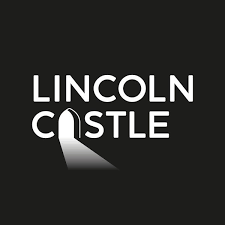
Access Card Holder praises iconic attraction
Please welcome the Access Card's latest 'Named & Famed' Provider: Lincoln Castle This venue is 'Named & Famed'. Visit our FAQs page to find out more. "Lincoln Castle is a major Norman castle...
Read more
-

Planning to use your Access Card over the Easter bank holiday weekend?
We have over fourteen hundred exciting places listed in our directory, including Alton Towers Resort, Cadbury World, Harry Potter Studio Tour & Disneyland Paris. A full list of Access Card Providers...
Read more
-

Access Card 'Names & Fames' The Forum
The Forum will join a large number of other 'Named & Famed' Providers This venue is 'Named & Famed'. Visit our FAQs page to find out more. "The Forum was built as an art deco cinema in Bath,...
Read more